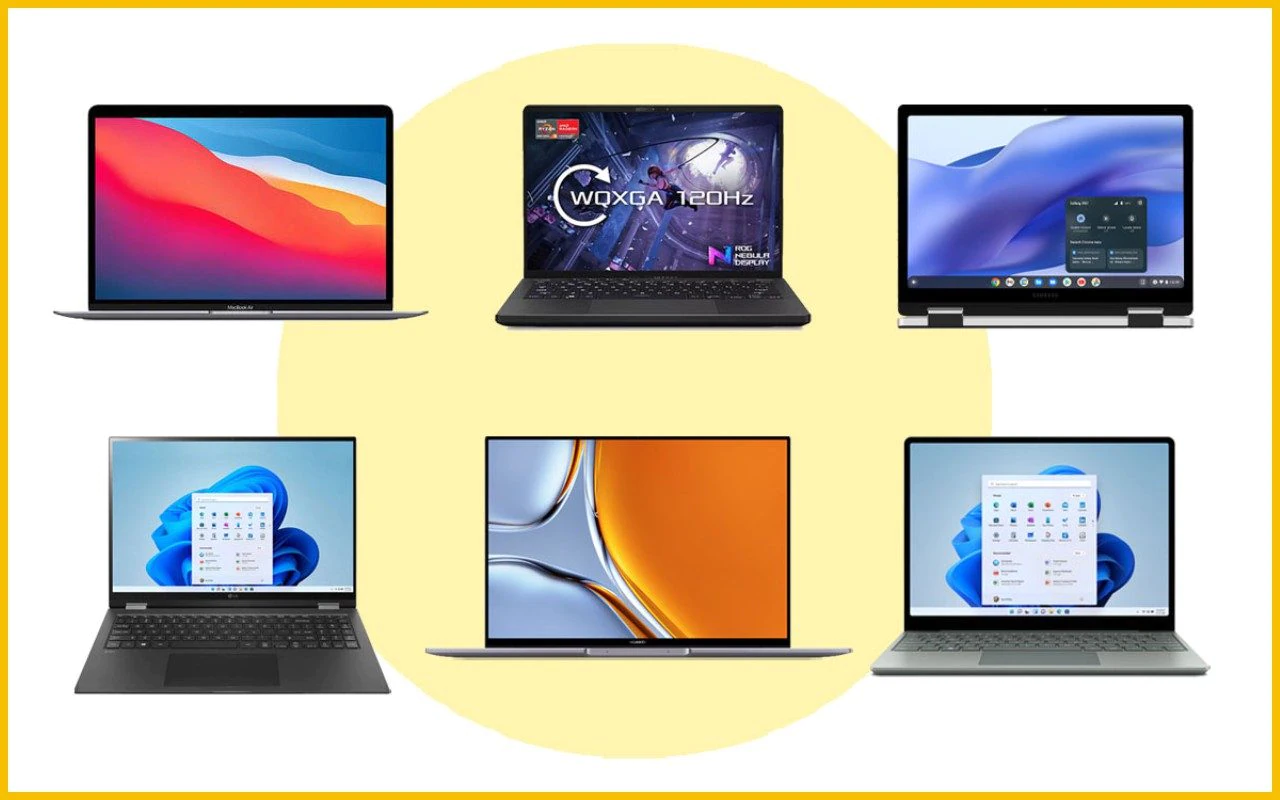Choosing a laptop can be a daunting task, especially for those who are not well-versed in the technical jargon that surrounds the world of computers. There are many factors to consider when purchasing a laptop, such as the brand, the specifications, the price, and the intended use. In this article, we will explore these factors and offer some tips on how to choose the perfect laptop for your needs.
Brand
The first thing to consider when choosing a laptop is the brand. There are many reputable laptop brands on the market, including Apple, Dell, HP, Lenovo, Asus, Acer, and Microsoft. Each brand has its own strengths and weaknesses, so it is important to do your research and choose a brand that suits your needs.
For example, Apple laptops are known for their sleek designs, user-friendly interface, and high-quality displays. Dell and HP are known for their reliability and durability, while Lenovo is known for its business-oriented features and excellent keyboards. Asus and Acer are known for their budget-friendly laptops, while Microsoft is known for its Surface line of hybrid laptops.
Of course, brand loyalty also plays a role in the decision-making process. If you have had a positive experience with a certain brand in the past, you may be more likely to choose that brand again. However, it is always important to keep an open mind and consider all of your options before making a decision.
Specifications
Once you have chosen a brand, the next thing to consider is the specifications of the laptop. The most important specifications to consider are the processor, RAM, storage, and graphics card.
The processor is the “brain” of the computer and determines how fast it can perform tasks. Intel and AMD are the two main processor manufacturers on the market, with Intel being the more popular choice for laptops. The latest generation of Intel processors are the 11th Gen Intel Core processors, which offer improved performance and battery life compared to previous generations.
RAM, or random access memory, determines how many programs and applications you can run at the same time without the computer slowing down. For most users, 8GB of RAM is sufficient, but power users may want to consider 16GB or even 32GB.
Storage is another important specification to consider. There are two main types of storage: hard disk drives (HDD) and solid-state drives (SSD). HDDs are slower and less reliable than SSDs, but they offer more storage space for a lower price. SSDs are faster and more reliable, but they are also more expensive and offer less storage space. For most users, a 256GB or 512GB SSD should be sufficient, but power users may want to consider a 1TB or 2TB SSD.
Finally, the graphics card is important for users who plan to use their laptop for gaming or graphic design. NVIDIA and AMD are the two main graphics card manufacturers on the market, with NVIDIA being the more popular choice for laptops. The latest generation of NVIDIA graphics cards are the GeForce RTX 30 series, which offer improved performance and ray tracing capabilities compared to previous generations.
Price
The price of a laptop is also an important factor to consider. Laptops can range from a few hundred dollars to several thousand dollars, depending on the brand, specifications, and features. It is important to set a budget before starting your search and to stick to it as much as possible.
For budget-conscious buyers, there are many affordable options on the market, such as Chromebooks and entry-level laptops from brands like Asus and Acer. These laptops may not have the latest and greatest specifications, but they are sufficient for basic tasks like web browsing, email, and word processing.
For mid-range buyers, there are many options with more powerful specifications and features, such as high-resolution displays, dedicated graphics cards, and longer battery life. These laptops are suitable for more demanding tasks like video editing, gaming, and programming.
For high-end buyers, there are premium laptops from brands like Apple, Dell, and Microsoft, which offer the latest and greatest specifications and features, such as OLED displays, touchscreens, and facial recognition. These laptops are suitable for power users who require the best performance and features available.
Intended Use
Finally, the intended use of the laptop should also be considered when making a purchase. Different users have different needs and preferences, and it is important to choose a laptop that suits your specific needs.
For students, a lightweight and portable laptop with a long battery life is ideal, as it can be easily carried around campus and used for note-taking, research, and studying. Chromebooks and entry-level laptops are suitable for most students, as they can handle basic tasks like web browsing and document editing.
For business users, a laptop with a comfortable keyboard and reliable performance is essential. Business-oriented laptops from brands like Lenovo and Dell are suitable for this purpose, as they offer features like fingerprint scanners, TPM chips, and vPro management.
For gamers, a laptop with a dedicated graphics card and a high refresh rate display is necessary. Gaming laptops from brands like ASUS and MSI are suitable for this purpose, as they offer powerful graphics cards and high-quality displays.
For creative professionals, a laptop with a high-resolution display and a powerful processor is necessary. Laptops from brands like Apple and Dell are suitable for this purpose, as they offer features like Retina displays and powerful processors that can handle demanding tasks like video editing and graphic design.
Conclusion
In conclusion, choosing a laptop can be a daunting task, but by considering factors like brand, specifications, price, and intended use, you can narrow down your options and choose the perfect laptop for your needs. It is important to do your research and read reviews from other users before making a purchase as this is very important for decision making.
